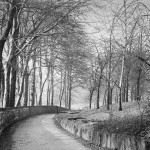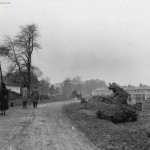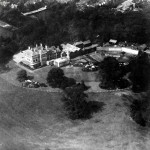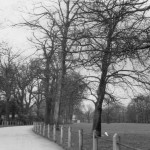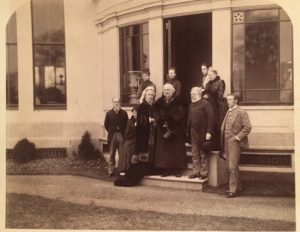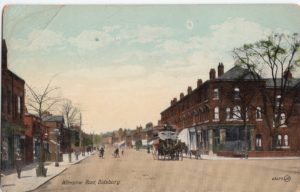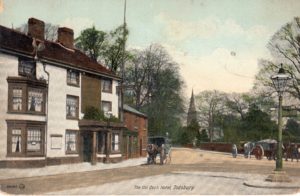Ford Bank House and surrounding area
Ford Bank House and Ford Bank Estate
Ford Bank House occupied much of what is now the Ford Bank Estate and prior to that it was believed to be farm land. Ford Bank House, probably the largest house erected in Didsbury was built in about 1823 by Joseph Birley a cotton manufacturer. The extended Birley family had a widespread influence on Manchester history, even going back to the Peterloo massacre where one of the Birley ancestors led a contingent of the mounted soldiers who attacked what was a peaceful protest gathering. Most recently, Dr Jim Birley passed away in 2013. He was a distinguished President of the Royal College of Psychiatrists.
Ford Bank House was sold to Thomas Ashton in 1858 when he died in 1898. In 1919 the remaining estate was sold to Dr Herbert Levinstien who worked on mustard gas research during the first world war. In 1934 the estate was sold to Ford Bank Estates Limited who developed and built what is now the Fordbank Estate. The photographs are shown here courtesy of the Manchester City Council photograph archive. They show views of the original Ford Bank House, ‘new’ houses being built (possibly Ford Bank looking towards Ford Lane – we have had lots of arguments about this!) Ford Lane before houses were built and possibly what is now Deneford Road leading towards the old Ford Bank House.
Images of Thomas Ashton at Ford Bank when Mr Gladstone visited
Postcards of Ford Bank Estate and surrounding area from circa 1910
The following map courtesy of the National Library of Scotland details the area at the beginning of the 20th Century:
https://maps.nls.uk/view/114581248
